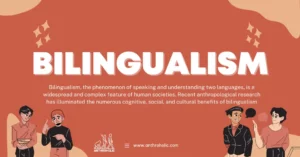AI Answer Evaluation Platform Live Now. Try Free Answer Evaluation Now
Gossip
Gossip, ubiquitous across cultures and societies, has been subject to various anthropological studies. From a linguistic anthropological perspective, gossip serves multiple socio-cultural functions, reflecting, shaping, and challenging community norms and individual identities [1].

Defining Gossip
In a broad sense, gossip can be defined as informal, private conversations about other people, usually not present during the discourse. These conversations, often anecdotal or speculative, can involve both negative and positive statements [2].
Functions of Gossip
Bonding and Identity Formation
Gossip plays a crucial role in forging interpersonal connections and group identities. It establishes a sense of shared understanding and values, creating an ‘in-group’ and an ‘out-group’ [3].
- In-group Formation: Gossiping provides a sense of belonging by unifying individuals around shared narratives and views.
- Out-group Definition: People who are gossiped about often form the ‘out-group,’ further strengthening the in-group’s identity.
Social Control and Norm Regulation
Gossip can act as a mechanism for social control and norm regulation [4].
- Behavioural Regulation: The fear of becoming a subject of gossip can deter individuals from deviant behaviour, thus maintaining social order.
- Social Sanctioning: Gossip can lead to public shaming, acting as a form of punishment for those who defy societal norms.
Information Exchange
Gossip acts as a channel for information exchange, providing insights about societal norms, individual behaviours, and potential threats or opportunities.
Cultural Variations of Gossip
Although gossip is universal, its themes, frequency, and implications differ across cultures.
| Culture | Common Themes | Frequency | Implications |
|---|---|---|---|
| Western Cultures | Personal lives, celebrities | Daily | Can lead to social bonding or ostracism |
| African Cultures | Community events, politics | Daily | Major tool for information dissemination |
| Asian Cultures | Family honor, societal norms | Occasional | Can greatly affect personal and family reputation |
The Linguistic Structure of Gossip
The linguistic form of gossip is characterized by certain structural elements:
- Narrative Form: Gossip often follows a narrative structure, providing a beginning, middle, and end.
- Presupposition: Gossipers often assume shared knowledge about the person or situation being discussed.
- Indirect Speech: Gossip often uses indirect speech to convey sensitive or potentially harmful information.
Gossip in a Digital Age
The proliferation of digital communication channels, particularly social media, has altered the way gossip is transmitted, received, and interpreted.
- Enhanced Accessibility: The Internet allows for faster and more widespread dissemination of gossip, enabling it to reach a larger audience than ever before.
- Anonymity and Detachment: Online platforms offer a degree of anonymity which can intensify the propensity for gossip due to reduced accountability.
- Digital Evidence: Unlike face-to-face gossip, digital gossip leaves behind an immutable record that can be reviewed, disseminated, and even used as evidence.
The following table represents the differences between traditional and digital gossip:
| Aspect | Traditional Gossip | Digital Gossip |
|---|---|---|
| Speed | Relatively Slow | Extremely Fast |
| Reach | Limited | Potentially Global |
| Anonymity | Rarely | Often |
| Record | Verbal and Temporary | Permanent |
Challenges and Research Opportunities
Despite extensive research, gossip still presents several challenges and unexplored areas, including:
- Cross-cultural Studies: While there are studies examining gossip in various cultures, there’s a need for more comparative studies to understand the universal and unique aspects of gossip across different societies.
- Impact of Digital Age: More research is required to understand the impact of digital platforms on the nature, implications, and roles of gossip.
- Individual Differences: Further studies are required to explore how factors like personality traits, gender, and age influence gossip behavior.
Ethical Implications of Gossip
Gossip can have both positive and negative ethical implications, depending on its nature and intention.
- Positive Implications: When used constructively, gossip can help maintain social order, strengthen communal bonds, and disseminate important information.
- Negative Implications: On the flip side, malicious gossip can lead to personal harm, social exclusion, and the spreading of false information.
Conclusion
While traditionally stigmatized as frivolous or harmful, gossip is increasingly recognized for its multi-faceted functions in social and cultural contexts. From an anthropological linguistic perspective, gossip is more than a simple pastime. It is a complex social activity that shapes societal norms, individual identities, and the human interaction landscape. The digital age further extends the realm of gossip, creating new avenues for research and understanding of this pervasive human practice.
References
[1] Gluckman, M. (1963). Gossip and Scandal. Current Anthropology.
[2] Paine, R. (1967). What is Gossip About? An Alternative Hypothesis. Man.
[3] Dunbar, R. (2004). Gossip in Evolutionary Perspective. Review of General Psychology.
[4] Fine, G. A., & Rosnow, R. L. (1978). Gossip, Gossipers, and Gossiping. Personality and Social Psychology Bulletin.




